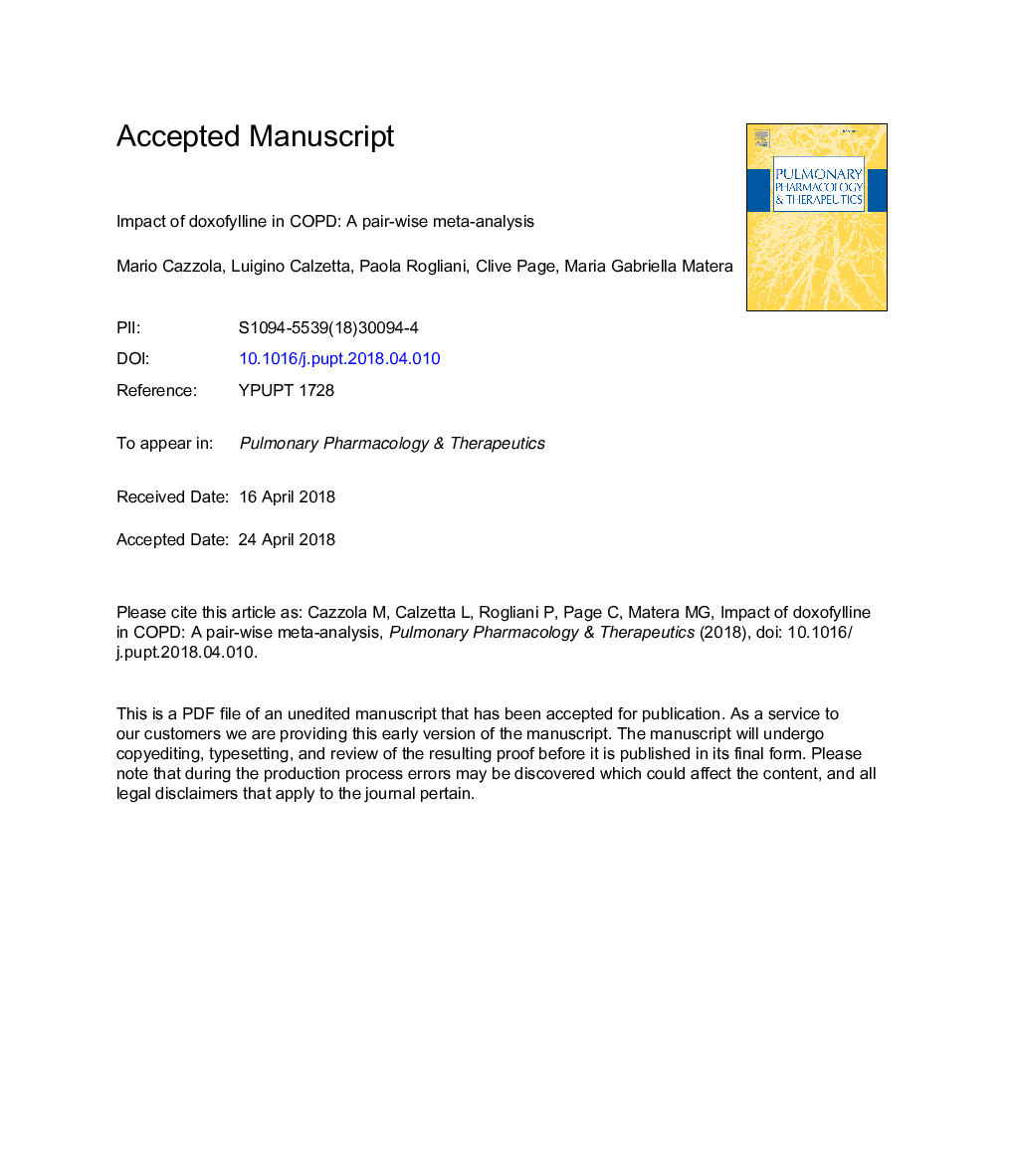| Article ID | Journal | Published Year | Pages | File Type |
|---|---|---|---|---|
| 8537692 | Pulmonary Pharmacology & Therapeutics | 2018 | 22 Pages |
Abstract
Doxofylline is an effective bronchodilator for relieving airway obstruction in patients with asthma or chronic obstructive pulmonary disease (COPD), and displays a better safety profile with respect to theophylline. Herein, we performed a pairwise meta-analysis of the currently available data to provide consistent and homogeneous findings on the impact of this xanthine in COPD patients. Results obtained from 820 patients were selected from 20 clinical trials. Meta-regression was performed to examine the source of heterogeneity between-studies and identify potential confounder covariates. The quality of the evidence was assessed by the GRADE system. Doxofylline induced a significant (Pâ¯<â¯0.001) increase in forced expiratory volume in 1â¯s (FEV1) of 8.20% (95%CI 4.00-12.41; I2 93%) and 317â¯ml (95%CI 19-439; I2 87%) compared with baseline. The total administered dose of doxofylline significantly (Pâ¯<â¯0.001) interacted with the size of the effect estimates detected for FEV1. Doxofylline induced a significant (Pâ¯<â¯0.001), although moderate, increase in adverse events (AEs) frequency (proportion 0.03, 95%CI 0.02-0.04; I2 88%), but only epigastralgia, nausea, dyspepsia and headache were statistically significant (P < 0.05). The GRADE analysis indicated high quality of evidence (++++) for the impact of doxofylline on FEV1, and moderate quality of evidence (+++) for the safety profile in COPD patients. Doxofylline is an effective and safe medicine when administered to patients with COPD and can be considered as an alternative to theophylline.
Keywords
FEV1MRCRCTsPRISMAMCIDPLNSMDrandomized clinical trialsPreferred Reporting Items for Systematic Reviews and Meta-AnalysesSafetyCOPDChronic obstructive pulmonary diseasestandardized mean differenceProportionforced expiratory volume in 1 sMinimal Clinically Important Differencestandard errordoxofyllineDevelopmentMedical Research CouncilLung functionAdverse eventsconfidence intervalGrademean difference
Related Topics
Health Sciences
Medicine and Dentistry
Pulmonary and Respiratory Medicine
Authors
Mario Cazzola, Luigino Calzetta, Paola Rogliani, Clive Page, Maria Gabriella Matera,
